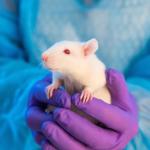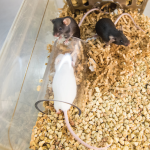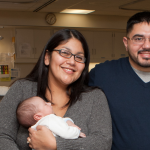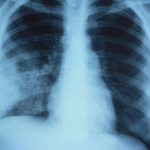You are here
- Home
- Our Impact
Our Impact



Monday, July 23, 2018
New Rat Study May Provide Important Clues for Outsmarting Obesity



Monday, April 30, 2018
New Platform for Delivering Cancer Treatment Shows Great Promise in Mouse Models

Sunday, April 15, 2018
U-M Researchers Have Developed A New Vaccine That Suppresses Peanut Allergies in Mice

Tuesday, April 10, 2018
Animal Model, ECMO Technology Used to Help Develop Innovative Artificial Placenta

Thursday, March 15, 2018
Mouse Model Helps Researchers Examine Specific Mechanisms Underlying Cryptococcal Disease

Thursday, February 22, 2018
Mouse Study Could Pave the Way for New Approaches to Treating Obesity